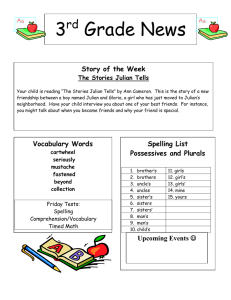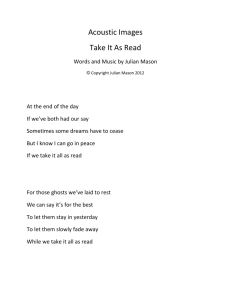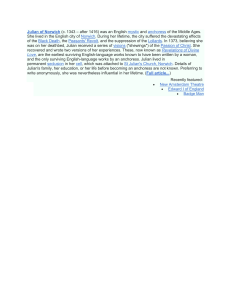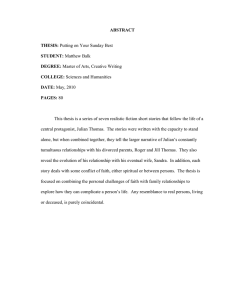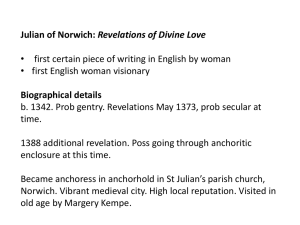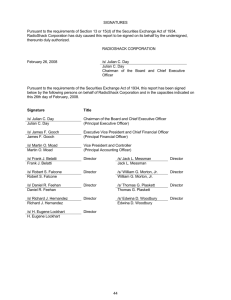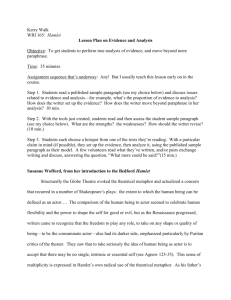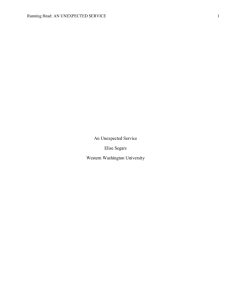Task: Punctuation: Commas, Semicolons, & Colons
advertisement
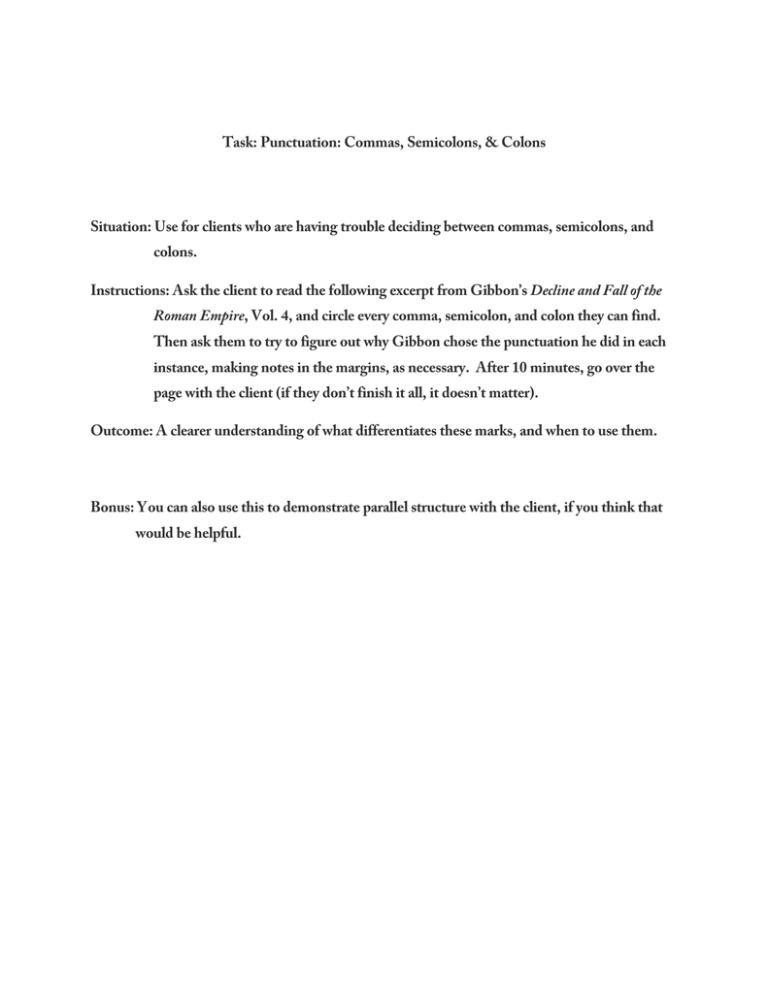
Task: Punctuation: Commas, Semicolons, & Colons Situation: Use for clients who are having trouble deciding between commas, semicolons, and colons. Instructions: Ask the client to read the following excerpt from Gibbon’s Decline and Fall of the Roman Empire, Vol. 4, and circle every comma, semicolon, and colon they can find. Then ask them to try to figure out why Gibbon chose the punctuation he did in each instance, making notes in the margins, as necessary. After 10 minutes, go over the page with the client (if they don’t finish it all, it doesn’t matter). Outcome: A clearer understanding of what differentiates these marks, and when to use them. Bonus: You can also use this to demonstrate parallel structure with the client, if you think that would be helpful. WH ILE the Romans languished under the ignominious tyranny of eunuchs and bishops, the praises of Julian were repeated with transport in every part of the empire, except in the palace of Constantius. The Barbarians of Germany had felt, and still dreaded, the arms of the young Cæsar; his soldiers were the companions of his victory; the grateful provincials enjoyed the blessings of his reign; but the favourites who had opposed his elevation were offended by his virtues; and they justly considered the friend of the people as the enemy of the court. As long as the fame of Julian was doubtful, the buffoons of the palace, who were skilled in the language of satire, tried the efficacy of those arts which they had so often practised with success. They easily discovered that his simplicity was not exempt from affectation: the ridiculous epithets of an hairy savage, of an ape invested with the purple, were applied to the dress and person of the philosophic warrior; and his modest despatches were stigmatised as the vain and elaborate fictions of a loquacious Greek, a speculative soldier, who had studied the art of war amidst the groves of the academy. The voice of malicious folly was at length silenced by the shouts of victory; the conqueror of the Franks and Alemanni could no longer be painted as an object of contempt; and the monarch himself was meanly ambitious of stealing from his lieutenant the honourable reward of his labours. In the letters crowned with laurel, which, according to ancient custom, were addressed to the provinces, the name of Julian was omitted. “Constantius had made his dispositions in person; he had signalised his valour in the foremost ranks; his military conduct had secured the victory; and the captive king of the Barbarians was presented to him on the field of battle,” from which he was at that time distant about forty days’ journey. So extravagant a fable was incapable, however, of deceiving the public credulity, or even of satisfying the pride of the emperor himself. Secretly conscious that the applause and favour of the Romans accompanied the rising fortunes of Julian, his discontented mind was prepared to receive the subtle poison of those artful sycophants who coloured their mischievous designs with the fairest appearances of truth and candour. Instead of depreciating the merits of Julian, they acknowledged, and even exaggerated, his popular fame, superior talents, and important services. But they darkly insinuated that the virtues of the Cæsar might instantly be converted into the most dangerous crimes, if the inconstant multitude should prefer their inclinations to their duty; or if the general of a victorious army should be tempted from his allegiance by the hopes of revenge and independent greatness. The personal fears of Constantius were interpreted by his council as a laudable anxiety for the public safety; whilst in private, and perhaps in his own breast, he disguised, under the less odious appellation of fear, the sentiments of hatred and envy, which he had secretly conceived for the inimitable virtues of Julian.
